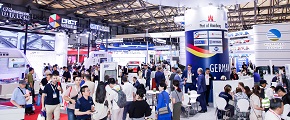A Deep Dive into Vehicle Logistics from China to Europe
Date: 2024.6.25
Time: 11:30-13:00
Room: Forum Area, W3.571
Organizers:
BVL - The Supply Chain Network, BLG LOGISTICS
Conference Introduction:
In 2020, a Chinese start-up car manufacturer chose a German port as the initial handling facility for its 53 battery-driven SUVs. The increasing share of electric vehicles requires changes in port infrastructure as well as in logistics concepts. The higher weight due to the batteries, for example, increasingly affects both load volumes and loading processes of the transport trucks and rail cars. Since then, the electric vehicle imports from China to Europe have grown dramatically, from nearly zero in 2020 to 52,131 in mid-2022, and 99,645 in 2023, marking an annual increase of 91 percent.
Meanwhile, the handling of passenger cars at BLG AutoTerminal Bremerhaven, Germany's largest automotive hub and one of the largest in Europe and the world, has fundamentally changed in recent years. For a long time, exports outweighed imports by a ratio of 80 to 20. There is no doubt: the increasing Chinese automobile market demands innovative solutions for vehicle transport to Europe.
Several opportunities and trends, such as the new Silk Road, as well as growing potentials rising from artificial intelligence, open up new potentials for car manufactures to simplify export to European markets. However, navigating the complex landscape of political, legal, and technical requirements remains a challenge.
In this session, international business and automotive experts will provide insights from the logistics perspective on the potential of conquering European markets. One of the experts comes from one of the most successful ports in Europe, BLG AutoTerminal Bremerhaven. It is among the largest automobile ports in the world with an annual capacity of approximately 1.5 million vehicles. Handling 5 million vehicles annually, BLG LOGISTICS is a leader in automobile logistics in Europe.
This session is hosted by the Federal Logistics Association of Germany (Bundesvereinigung Logistik – BVL). Since its founding, BVL has been a key player in the logistics and supply chain management sector. BVL represents the interests of its members, ranging from small and medium-sized enterprises to large multinational corporations, and serves as a major advocate for the logistics industry in Germany and beyond. BVL promotes efficient logistics processes and supply chain management through knowledge transfer, networking, and representing the logistics industry at both the national and international levels. BVL members include professionals from all areas of logistics and supply chain management, providing a wide array of transport, distribution, storage, and post-production services.


































 Messe Muenchen Shanghai
Messe Muenchen Shanghai





















